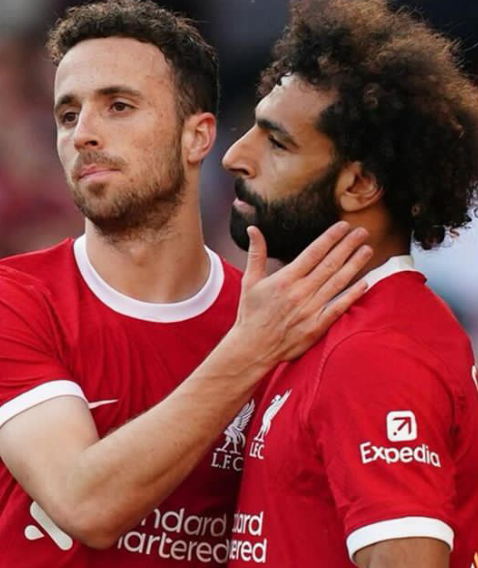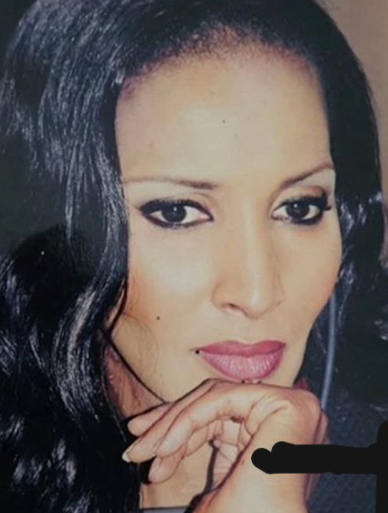
Twitter Erupts as Nigerian Man Gets Backlash for Calling Out Mo Salah Over Diogo Jota’s Death Silence

Social media has once again proven to be a boiling pot of opinion, grief, and outrage after a Nigerian man, known by his handle @oluwapundittt, came under fire for publicly criticizing Liverpool star Mohamed Salah over his silence following the reported death of teammate Diogo Jota. What was meant as an expression of disappointment spiraled quickly into a social media storm, with users lambasting the comment as insensitive and performative.
It all began when @oluwapundittt took to Twitter and wrote, “I think it's disgraceful Mo Salah hasn't posted anything about Diogo Jota. As a leader of the team, I find it disheartening tbh.” The tweet, posted on Thursday morning, immediately sparked a firestorm of reactions, with thousands weighing in from different corners of the football world, many of them not holding back.
Leading the countercharge was a user identified as @gideonmizpah, who fired back with a now-viral quote tweet: “Such a performative generation. Someone could be bawling his eyes out or in denial about the death of a friend and brother and you're here talking about ‘disgraceful he hasn't posted anything’. Shame on you.” That comment alone gathered thousands of retweets and likes within hours, turning it into a rallying cry against what many saw as an entitled and tone-deaf stance from the original poster.
As the news of Diogo Jota’s tragic passing continues to ripple through the football community—though still unconfirmed officially at press time—the emotional stakes are understandably high. Fans, players, and pundits have been paying tribute across platforms, with tears, heartfelt memories, and jerseys held aloft. But for many, the pressure to “post” a response in times of grief is increasingly being called into question.
Critics of @oluwapundittt’s remark were quick to argue that public silence does not equate to personal indifference. “Grief is not a performance,” one user wrote. “Not everyone mourns on Instagram stories.” Others emphasized the cultural and religious considerations that might inform Salah’s choice to stay off social media in moments of mourning. “Mo Salah is Muslim. Not everyone processes death by posting pictures and emojis. Let him grieve how he chooses,” another tweet read, garnering over 10,000 likes.
Some also highlighted the danger of social media users imposing expectations on public figures during emotionally delicate times. “This generation needs to stop demanding content in the name of grief. It’s not a reality show. Let people have their silence,” tweeted a user simply identified as @nana_abel. In a digital age where every moment is documented, the line between genuine emotion and online performance is growing blurrier by the day.
Interestingly, while the backlash against the Nigerian critic was swift, it has also sparked a parallel discussion about parasocial relationships and the nature of celebrity mourning. Many users pointed out that while public expressions of grief can be powerful and communal, they are not mandatory. “We cannot police how people mourn,” said @mariamszn, a psychology student who shared a thread on the complexities of trauma and loss. “Silence, for some, is a form of respect. For others, it's self-preservation. Demanding a tweet or post as proof of pain is toxic.”
Even journalists and football commentators joined the fray. Renowned sports journalist David Cartlidge commented, “The entitlement shown here is baffling. Salah is grieving in his own way—possibly offline, possibly in private with his family or teammates. It’s unfair to weaponize his silence.” Former Liverpool player Jamie Carragher was also said to have liked several tweets criticizing the original comment, subtly showing solidarity with those defending Salah.
Despite the heavy criticism, @oluwapundittt has not deleted the original tweet as of the time of writing. Instead, the account has gone private, perhaps overwhelmed by the sheer volume of mentions, quote tweets, and direct messages flooding in. Attempts to reach the user for comment were unsuccessful, but it’s evident from the public reaction that many feel he crossed a deeply emotional line.
Meanwhile, the broader football community continues to grapple with the shock of Diogo Jota’s reported death. Known for his tenacity, work ethic, and infectious smile, Jota had earned admiration not just from Liverpool fans, but from the wider football fraternity. Though no official statement has yet confirmed the news, several players and clubs have posted cryptic messages or black-out photos, suggesting they are awaiting clearance to speak publicly.
For Mohamed Salah, whose leadership and emotional presence in the Liverpool squad have been widely praised, the silence may very well be a personal and spiritual coping mechanism. It would not be the first time the Egyptian forward has chosen dignity and quiet reflection over public display. After previous tragedies and sensitive moments, Salah has consistently avoided sensationalism, preferring to grieve and reflect in private.
This entire episode raises deeper questions about our collective expectations from celebrities, especially in moments of shared tragedy. Are we demanding too much? Are we confusing visibility with vulnerability? And more importantly, have we lost sight of the fact that behind every verified account is a human being, capable of feeling the same depth of sorrow—if not more—as their fans?
As the discourse continues, one thing is certain: social media remains both a comforting space for shared sorrow and a brutal arena for judgment. The demand for public grief, instant reactions, and performative solidarity may be rooted in a desire for connection, but it can also quickly become an instrument of pressure and pain. Salah’s silence, whether temporary or permanent, should not be mistaken for a lack of care. Rather, it might just be the most genuine expression of grief—one that doesn't need retweets to be real.
In the coming days, as more details emerge about Diogo Jota’s fate and official tributes are released, the football world will continue to mourn. Whether through tweets, interviews, or a simple moment of silence on the pitch, players will find their own ways to honor a fallen teammate. And if Salah chooses to do so in private, perhaps that is not disgraceful—but deeply human.


